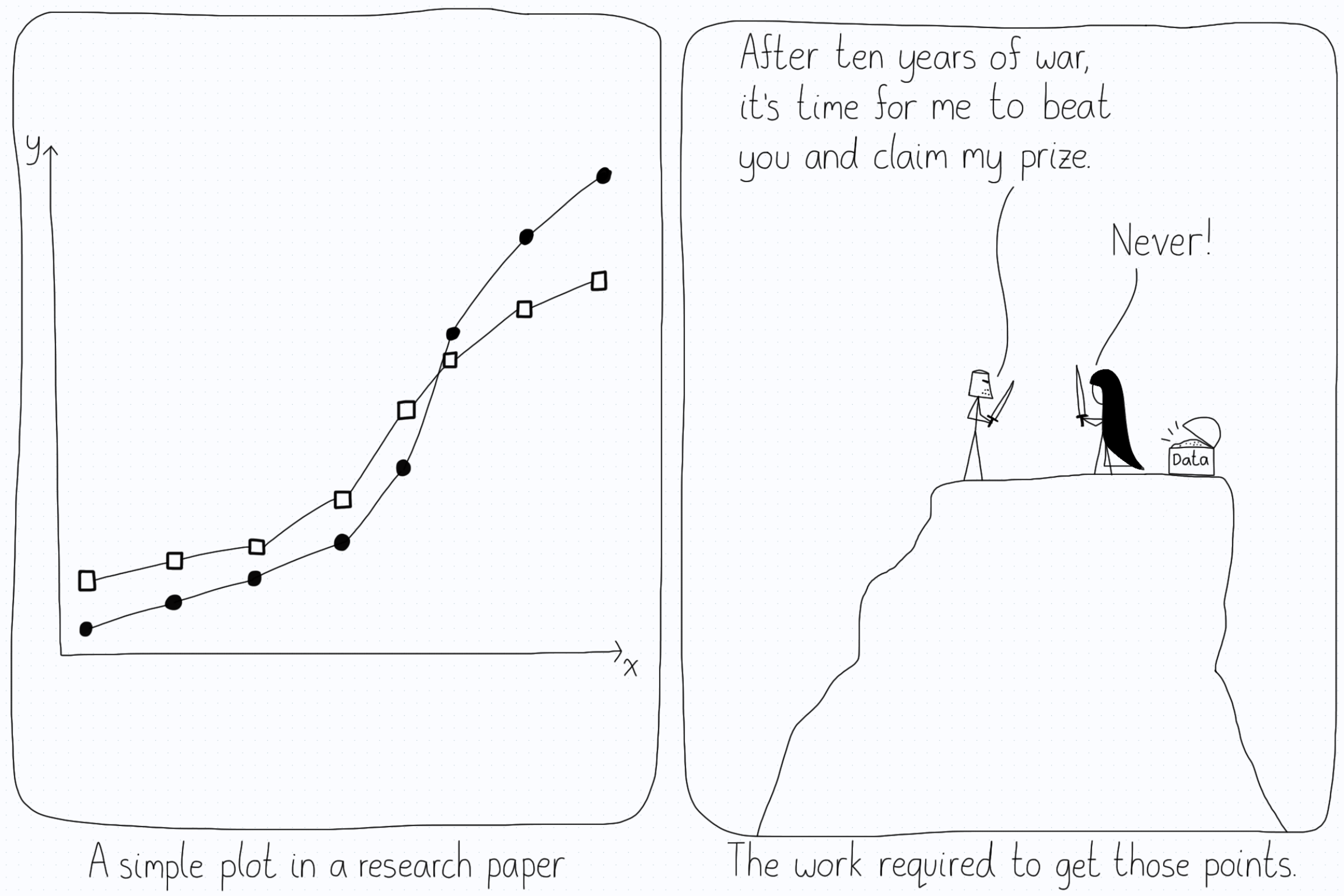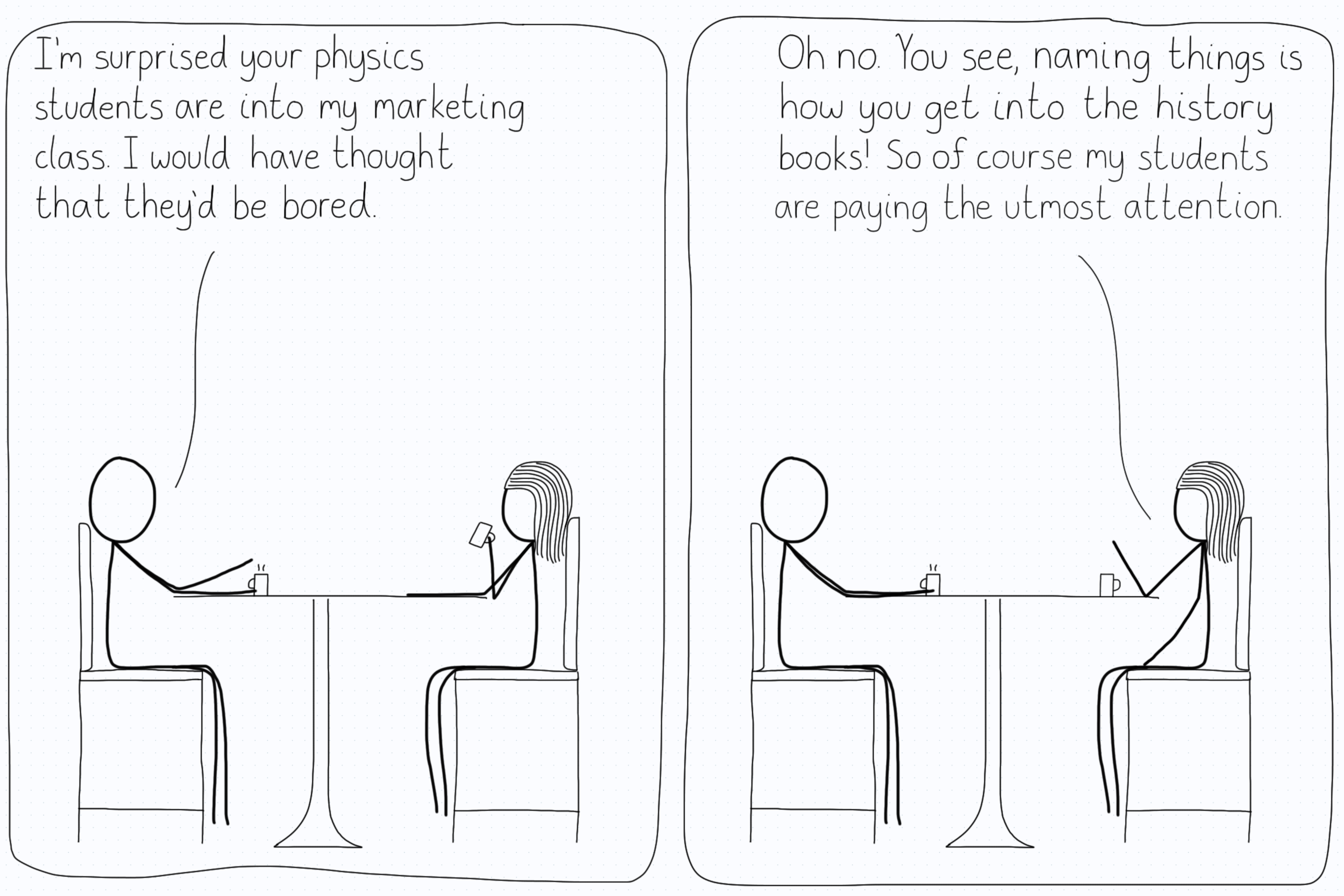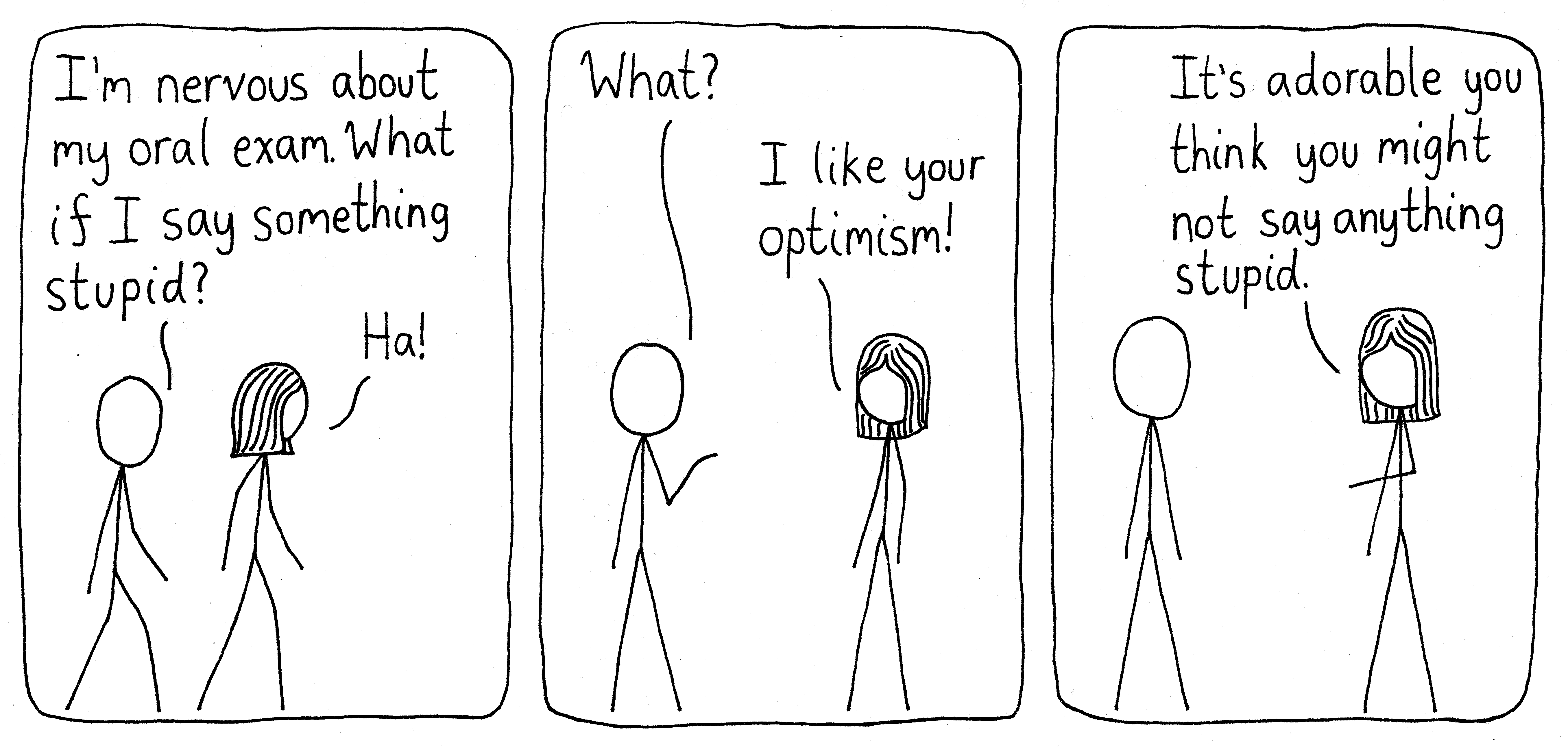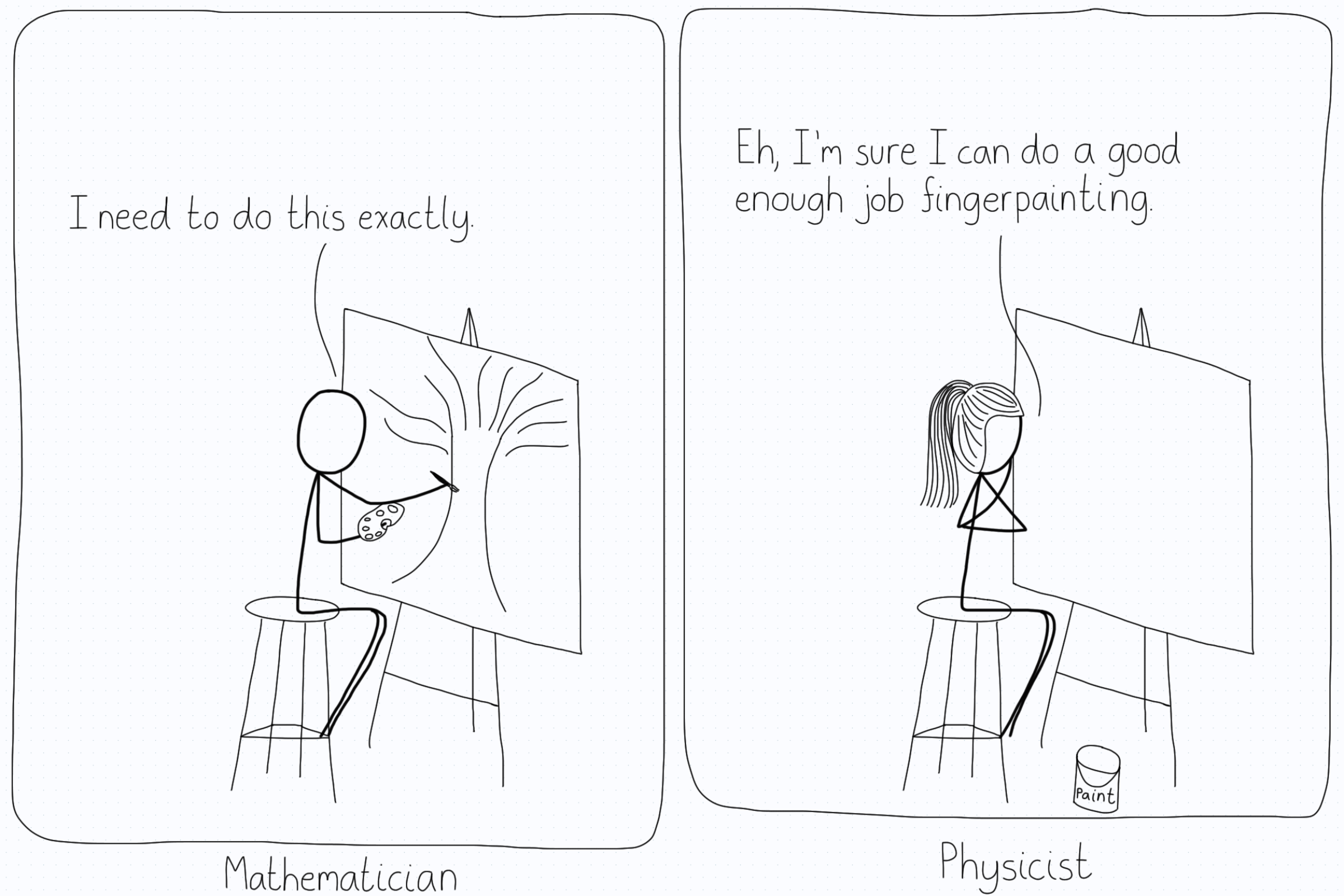 Comics about mathematics, science, and the student life.
Comics about mathematics, science, and the student life.
Guardrails

Teacher: “I’m basically guiding you through a harrowing mountain range where one bad step leads to death.”
24 Aug 2020Possibility Trap

“My scientific colleagues are not going to be happy with me when they hear about this…”
21 Aug 2020Simple Plot

“This plot looks easy to make.”
“Yeah… there were some twists and turns.”
(Hat-tip to my friend Benjamin for this idea.)
14 Aug 2020Buzzwords

“I don’t even notice the sound anymore. I usually work on these kind of things, so I’m used to it.”
12 Aug 2020Bending

It would probably be more satisfying for the mathematicians if the physicists didn’t actually succeed by breaking the rules.
07 Aug 2020Physics Marketing

“Making this marketing class mandatory for physics student is going to be the biggest distinguishing factor between our program and all the others!”
05 Aug 2020Oral Exam

It’s just great that we are expected to come up with answers on the fly, as if pausing to ponder is discouraged.
03 Aug 2020

